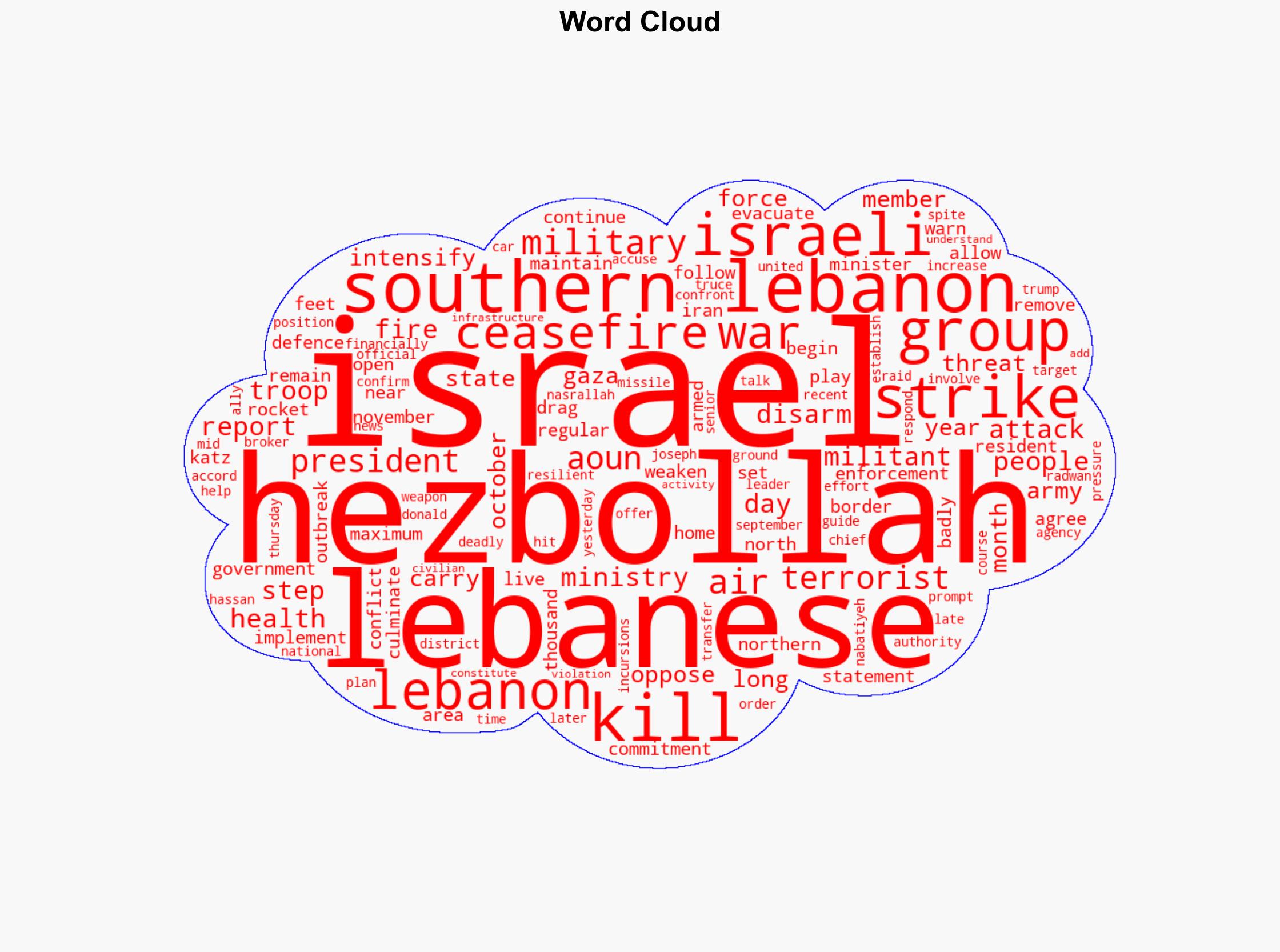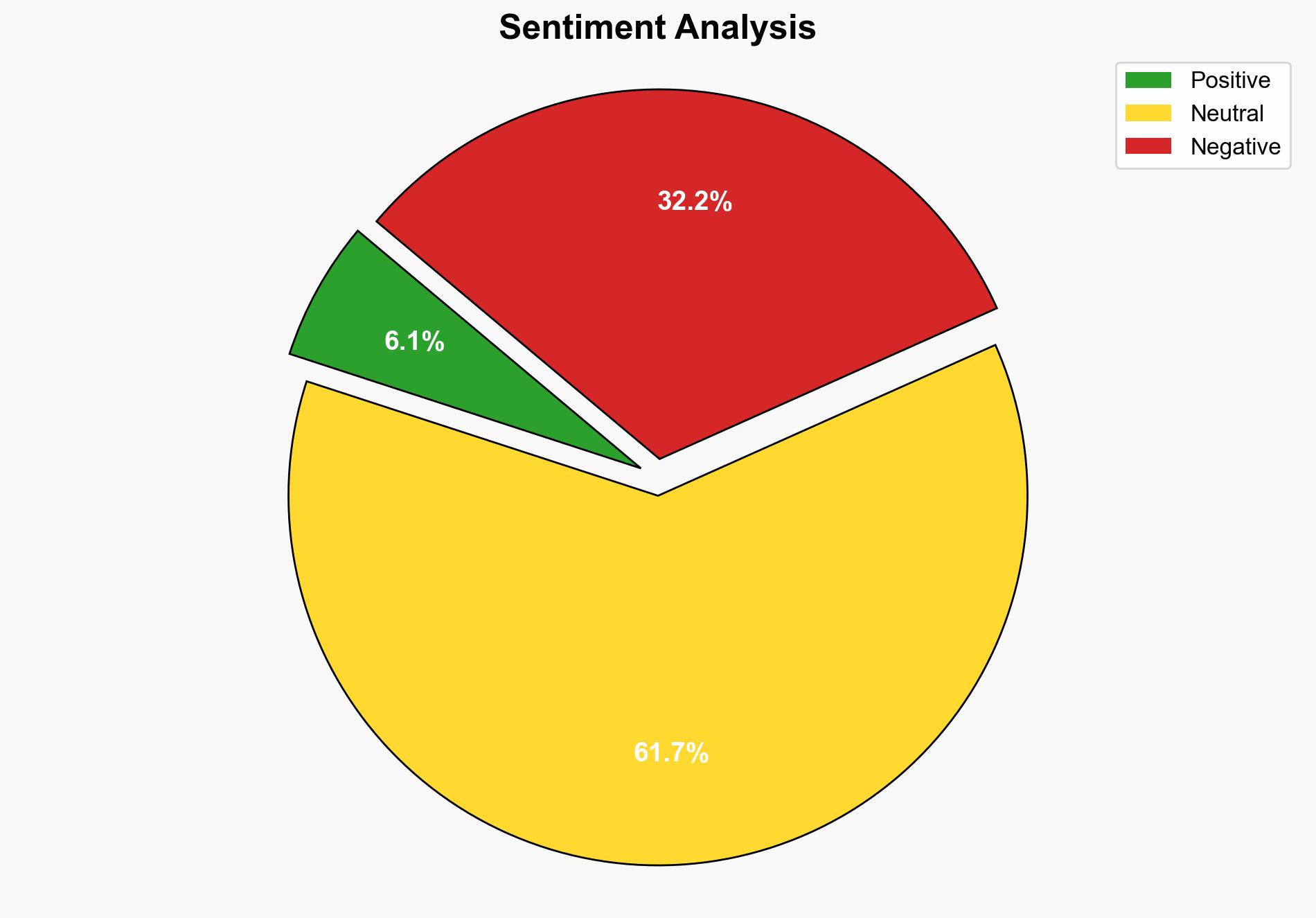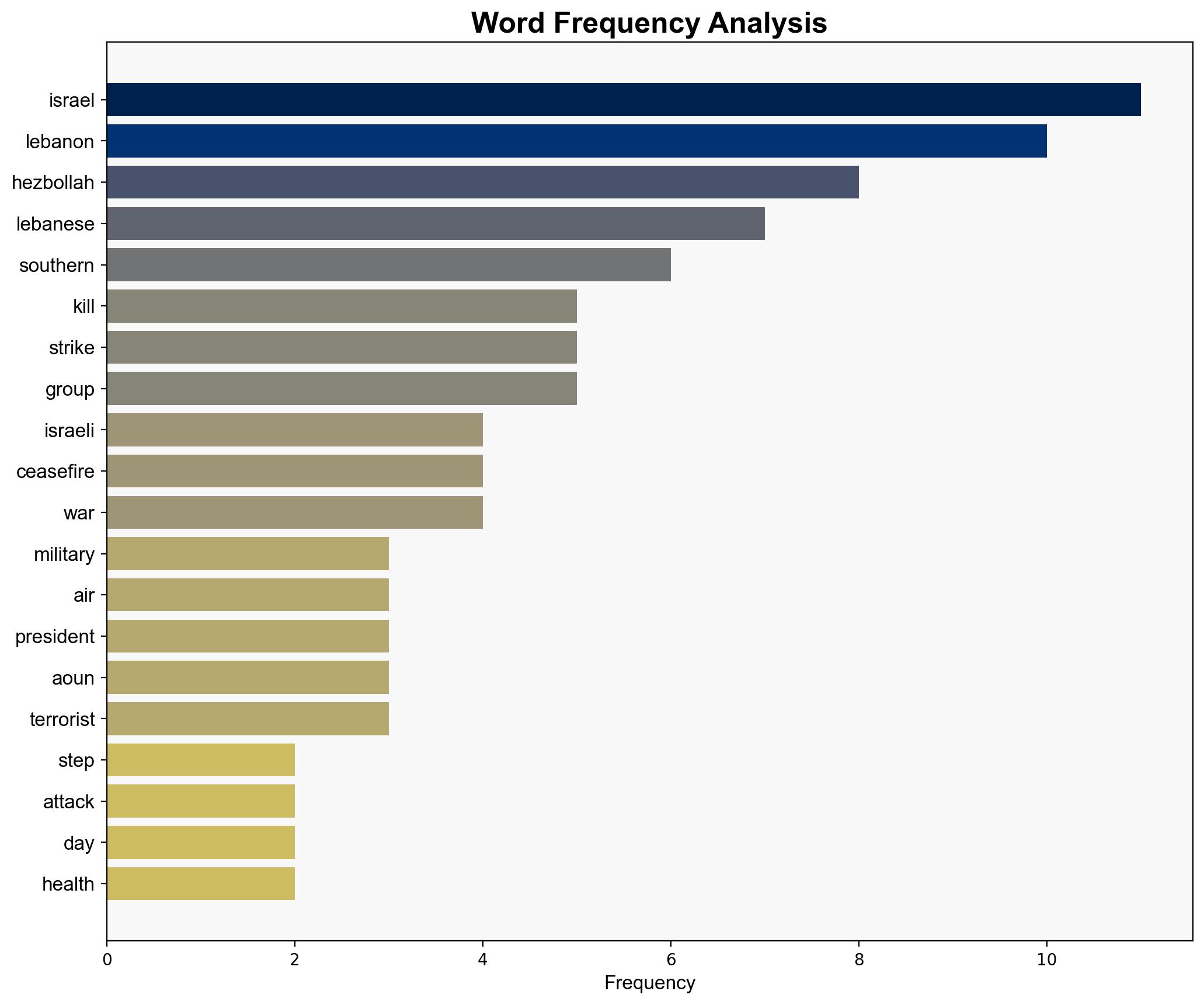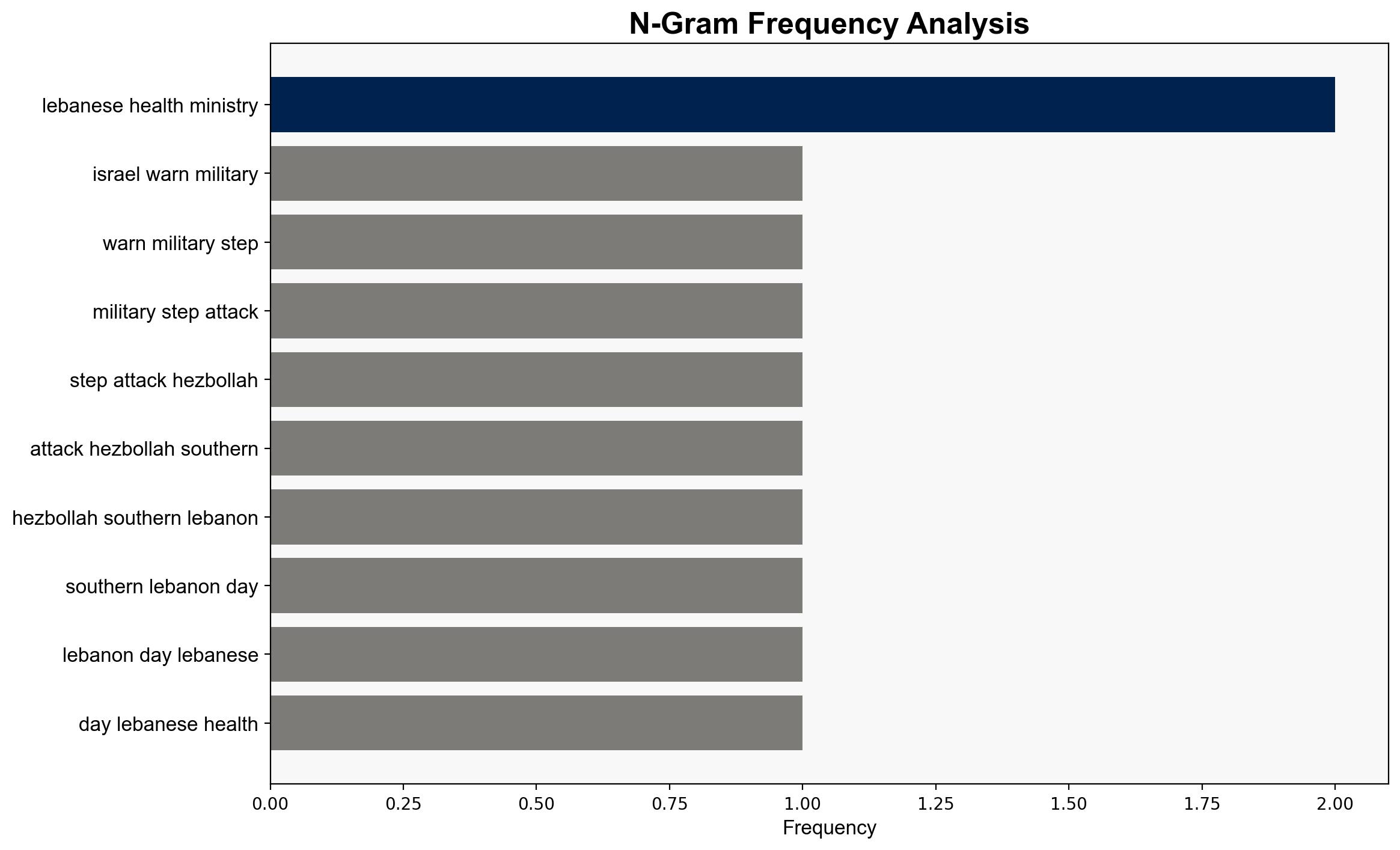Israel warns of intensifying attacks against Hezbollah – RTE
Published on: 2025-11-02
Intelligence Report: Israel warns of intensifying attacks against Hezbollah – RTE
1. BLUF (Bottom Line Up Front)
The most supported hypothesis is that Israel’s intensifying attacks on Hezbollah are a strategic maneuver to weaken Hezbollah’s military capabilities and deter future aggression. Confidence level: Moderate. Recommended action: Monitor developments closely and engage in diplomatic efforts to de-escalate tensions while preparing for potential regional instability.
2. Competing Hypotheses
1. **Hypothesis A**: Israel is intensifying attacks on Hezbollah to degrade its military capabilities and deter future aggression, particularly in light of recent escalations and the group’s continued armament.
2. **Hypothesis B**: Israel’s actions are primarily a response to domestic political pressures and a need to demonstrate military strength, rather than a calculated strategy against Hezbollah.
Using ACH 2.0, Hypothesis A is better supported by the consistent pattern of Israeli military actions targeting Hezbollah’s infrastructure and personnel, as well as public statements emphasizing security threats. Hypothesis B lacks direct evidence linking domestic political factors as the primary driver.
3. Key Assumptions and Red Flags
– **Assumptions**:
– Israel’s military actions are based on credible intelligence of threats from Hezbollah.
– Hezbollah’s continued armament poses a significant threat to Israeli security.
– **Red Flags**:
– Potential bias in Israeli statements framing actions as purely defensive.
– Lack of independent verification of Hezbollah’s threat level and military capabilities.
4. Implications and Strategic Risks
The intensification of attacks could lead to a broader conflict involving regional actors, potentially destabilizing the Middle East. Economic impacts could arise from disrupted trade routes and increased military spending. Cyber threats may escalate as both sides seek to exploit vulnerabilities. Geopolitically, increased tensions may strain international alliances and complicate diplomatic efforts.
5. Recommendations and Outlook
- Engage in diplomatic channels to encourage dialogue between Israel and Lebanon to prevent further escalation.
- Enhance intelligence-sharing with allies to better assess Hezbollah’s capabilities and intentions.
- Scenario Projections:
- Best Case: Successful diplomatic intervention leads to de-escalation and renewed ceasefire agreements.
- Worst Case: Full-scale conflict erupts, drawing in regional powers and causing significant humanitarian and economic crises.
- Most Likely: Continued skirmishes and airstrikes with periodic escalations, maintaining a tense but controlled situation.
6. Key Individuals and Entities
– Hassan Nasrallah
– Joseph Aoun
– Donald Trump
– Israel Katz
7. Thematic Tags
national security threats, counter-terrorism, regional focus, military strategy




